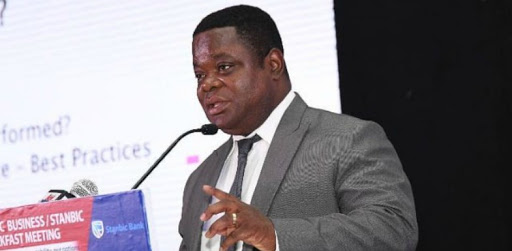The Institute of Statistical, Social and Economic Research is forecasting a better prospects of recovery in 2021 and beyond provided the nation invest in the productive sectors of the economy and reduce wastage.
Reviewing the 2021 Budget, it called for rationalization of expenditure and the promotion of value for money spending, adding, expenditure tracking should be encouraged.
“COVID-19 has worsened the already limited fiscal space. The expenditures and reliefs will certainly have to be paid – “There is No Free Lunch”. Some Policy options include ensuring efficiency in tax collection through digitization and limiting human interface or discretion is the surest way to go as well as review of the tax exemption regime”, it said.
ISSER also called for moderation of wage increases in the medium term based on cost of living differences and productivity.
It therefore asked whether wage increase should be freezed in the medium term or adjust wages and salaries to reflect cost of living differential.
It further said that COVID-19 has brought challenges to government finances. Yet, government has to fight the pandemic to save lives.
There is therefore the need to raise revenue, increase spending to accelerate the recovery and create employment.
Key programmes for recovery
ISSER welcomed the Ghana Cares “Obaatanpa” Initiative but questioned the source of funding the GH¢ 100 billion project which will be run over a period of three years.
Some activities of the Ghana Cares Programme are accelerate digitalization efforts to achieve greater efficiency and effectiveness in public service delivery, support commercial farming , address the housing deficit, leverage Ghana’s position to benefit greatly from international trade and employment creation.
The social and economic think tank said “it will encourage entrepreneurship in agriculture, light manufacturing etc. if effectively and efficiently carried out.”
Sectoral developments
ISER said in its 2021 Budget analysis that domestic initiatives should be aimed at increasing productivity and improving output in key primary sectors and value chains, adding Ghana still suffers from a high dependence on revenue from raw material exports.
It also called for the enhancement of government’s flagship programme ‘Planting for Exports and Rural Development’ to boost non-traditional exports.
Monetary policy programmes
Seventeen Asset Management Companies will be paid GH5.5 billion as part of the financial sector clean up exercise.
ISSER said that will inject liquidity to stimulate private sector capital, whilst individuals can redeem investments and inject them into economy of businesses.
On the 5% tax on banks pre-tax, he said that would help pay for the clean-up and provide funds for government to spend on infrastructure and other enablers for businesses. However, it would reduce dividend to shareholders, whilst banks may pass it on to customers
Latest Stories
-
Government releases GH₵26m to Institutional Suppliers
10 mins -
David Oscar adds ‘Hold On’ to his repertoire
13 mins -
Farouk Aliu Mahama embarks on reconciliation tour in Yendi
31 mins -
Ignore unofficial report of increase in fees and charges on Foreign Currency Accounts – Ecobank
40 mins -
Danny List secures land for Ghana’s first golf academy
41 mins -
United Nations, partners to roll out ‘I Pledge for Peace Campaign’
45 mins -
NPA sets ¢13.2 as price floor for petrol; ¢13.7 for diesel
56 mins -
Women accused of booing Zimbabwe’s first lady freed
57 mins -
TGMA: Nominees for Producer of the Year, three others announced
1 hour -
More African countries recall batch of cough syrup
1 hour -
Rust trial: How events unfolded after fatal shooting on Alec Baldwin film set
2 hours -
‘Drive Time’ on Joy FM airs from South Africa in June
2 hours -
Ghana’s debt sustainability journey: All you need to know
3 hours -
Mahmud Adeleye, the African AI expert trying to make a difference
3 hours -
Women accused of booing Zimbabwe’s First Lady freed
3 hours

